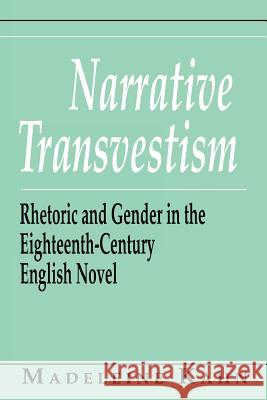Narrative Transvestism: An Essay on Aristotle's Metaphysics Z and H » książka
Narrative Transvestism: An Essay on Aristotle's Metaphysics Z and H
ISBN-13: 9780801497704 / Angielski / Miękka / 1991 / 200 str.
Many of the earliest canonical novels--including Defoe's Moll Flanders and Roxana and Richardson's Pamela and Clarissa--were written by men who assumed the first-person narrative voice of women. What does it mean for a man to write his "autobiography" as if he were a woman? What did early novelists have to gain from it, in a period when woman's realm was devalued and woman's voice rarely heard in public? How does the male author behind the voice reveal himself to readers, and how do our glimpses of him affect our experience of the novel? Kahn maintains that the answers to such questions lie in the nature of "narrative transvestism"--her term for the device through which a male author directs the reader's interpretation by temporarily abandoning himself to a culturally defined female voice and sensibility and then reasserting his male voice.
Many of the earliest canonical novels including Defoes Moll Flanders and Roxana and Richardsons Pamela and Clarissa were written by men who assumed the first-person narrative voice of women. What does it mean for a man to write his "autobiography" as if he were a woman? What did early novelists have to gain from it, in a period when womans realm was devalued and womans voice rarely heard in public? How does the male author behind the voice reveal himself to readers, and how do our glimpses of him affect our experience of the novel? Kahn maintains that the answers to such questions lie in the nature of "narrative transvestism" her term for the device through which a male author directs the readers interpretation by temporarily abandoning himself to a culturally defined female voice and sensibility and then reasserting his male voice."











